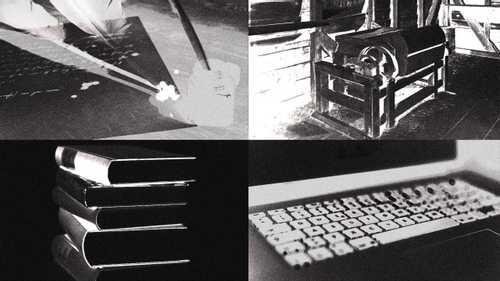The dark history of our obsession with productivity
Curated from: fastcompany.com
Ideas, facts & insights covering these topics:
7 ideas
·2.58K reads
11
1
Explore the World's Best Ideas
Join today and uncover 100+ curated journeys from 50+ topics. Unlock access to our mobile app with extensive features.
Productivity Obsession
As workers, we are obsessed with getting stuff done. It is then clear why there seems to be a bottomless well full of advice, hacks, tools, tricks, and secrets to help us pack more into the waking hours.
According to IBISWorld research, productivity software alone accounts for an $82 billion market.
79
529 reads
Modern History of Productivity
- Adam Smith wrote in 1776 that there are two kinds of labor: productive and unproductive. The productive one generally adds value to the materials which he works upon, of his own maintenance, and his master's profit. However, a man grows poor by maintaining a multitude of menial servants who add to the value of nothing.
- Benjamin Franklin put forth his own "to-do" list in 1791, stating that one should start the day asking what good shall be done and end the day evaluating what was accomplished.
89
350 reads
Abuse Masked as Productivity
In the late 18th and early 19th century, during the Industrial Revolution, machines moved production from handmade in the home to factories. A frenzy of producing more goods more quickly became a kind of national pastime.
Low-wage factory workers, many of whom were children, toiled in unsafe conditions for decades before labor unions put measures in place to protect workers from the excesses of the push for productivity.
65
323 reads
The Day Planner
By 1850, day planners were proliferating. Productivity became inexorably linked to the virtue of working hard.
Etiquette manuals of the era suggested that the daily planner was a means for self-improvement.
73
435 reads
The Birth of Consultants
- Frederick Winslow Taylor, an industrial engineer and efficiency expert, would get himself a consulting gig with a company, observe the workers, and calculate how they could do their jobs faster.
- Best known as the parents of Cheaper by the Dozen, Peers Frank and Lillian Gilbreth were mining productivity by dividing human action into 17 motions and then determining which was the most efficient and effective way to do any task.
62
269 reads
The Productivity Gurus
- Michael Porter exalted the leadership of productive management practices.
- Bill Smith, an engineer at Motorola, introduced the Six Sigma Method in 1986. It is a disciplined, data-driven approach for eliminating defects in any process. According to Six Sigma, productivity is more than revenues and profits, because profits reflect the end result, while productivity reflects the increased efficiency as well as the effectiveness of business policies and processes.
73
377 reads
Current state of productivity
In the frenzy to be more productive, we have become less so.
The procedures and methods in use are over a decade old. Until more robots and AI are incorporated to take over rote tasks, the downward trend will continue.60
301 reads
IDEAS CURATED BY
Holden Y.'s ideas are part of this journey:
Learn more about timemanagement with this collection
How to prioritize tasks effectively
How to manage your time efficiently
How to reduce stress and anxiety
Related collections
Similar ideas
6 ideas
The paradox of productivity
medium.com
5 ideas
A Brief History of Peanut Butter
smithsonianmag.com
24 ideas
How To Be 50x More Productive
medium.com
Read & Learn
20x Faster
without
deepstash
with
deepstash
with
deepstash
Personalized microlearning
—
100+ Learning Journeys
—
Access to 200,000+ ideas
—
Access to the mobile app
—
Unlimited idea saving
—
—
Unlimited history
—
—
Unlimited listening to ideas
—
—
Downloading & offline access
—
—
Supercharge your mind with one idea per day
Enter your email and spend 1 minute every day to learn something new.
I agree to receive email updates



